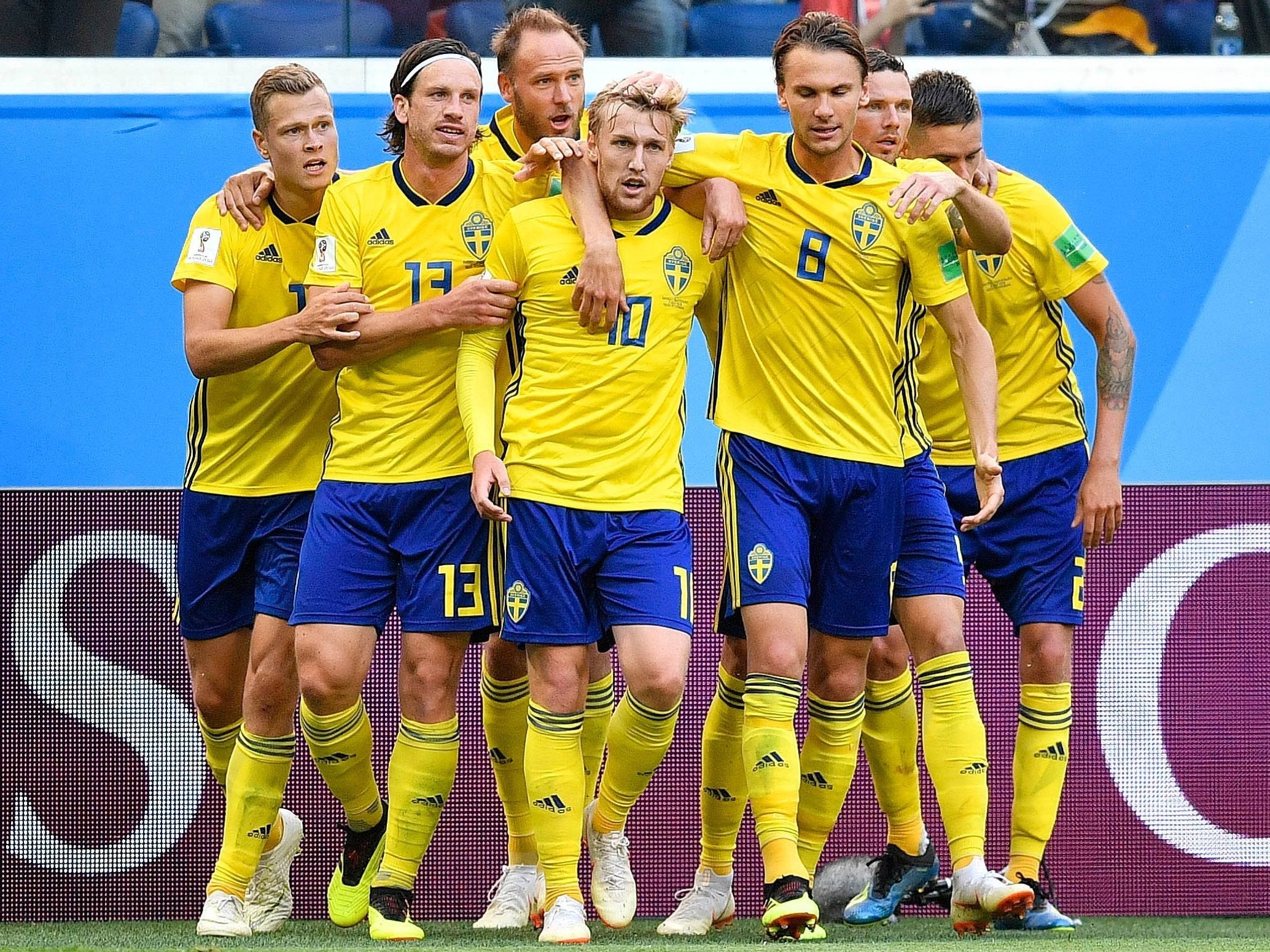World Cup 2018: How do you solve a problem like Sweden? England’s most difficult task is finding a task
Sweden carry no world-class talent, no obvious threat, no strong side. How do you mark a collective spirit? How do you tackle teamwork? How do you dribble through iron will?

Your support helps us to tell the story
From reproductive rights to climate change to Big Tech, The Independent is on the ground when the story is developing. Whether it's investigating the financials of Elon Musk's pro-Trump PAC or producing our latest documentary, 'The A Word', which shines a light on the American women fighting for reproductive rights, we know how important it is to parse out the facts from the messaging.
At such a critical moment in US history, we need reporters on the ground. Your donation allows us to keep sending journalists to speak to both sides of the story.
The Independent is trusted by Americans across the entire political spectrum. And unlike many other quality news outlets, we choose not to lock Americans out of our reporting and analysis with paywalls. We believe quality journalism should be available to everyone, paid for by those who can afford it.
Your support makes all the difference.There is a line of argument which says England are the most likely of any side left in the World Cup to reach the semi-finals: that says freescoring Belgium might break Brazil’s ageing backline; that says Uruguay’s entrenched defence might be Kylian Mbappe’s kryptonite; that says Croatia are playing a supercharged away match. Whereas England play Sweden. And what do Sweden bring?
Gareth Southgate’s management team will have spent much of the past 36 hours watching video of Sweden’s tournament so far, and the image that comes to mind is one of pens hovering threateningly over blank notepads and fingers resting intently on unmoved keyboards. Because even when watching Sweden beat South Korea or Mexico or Switzerland, it is hard to pinpoint exactly how they did it.
We have been told about their collective spirit, about the kind of unity only fostered by the departure of a narcissistic leader, about the simple principles ingrained by manager Janne Andersson, about a 4-4-2 formation which becomes a 4-6-0 when things get tough, a billowing yellow curtain concealing their goal.
But scratch a little deeper and there is nothing very simple about Sweden. They are a counter-attacking team without pace, a physical side who don’t bully, a team who’ve scored six goals without anyone much resembling a goalscorer. England’s most difficult task is to find a task. There is no world-class talent, no obvious threat, no strong side. How do you mark collective spirit? How do you tackle teamwork? How do you dribble through iron will?
There is a popular word in this World Cup – shithousery, which will be up for consideration at Oxford English HQ by the end of the year – referring to players and teams prepared to barge and bludgeon and stamp and skewer and poke fingers in orifices to win games of football. Sweden have their own more subtle take: a careful cajoling of the opposition into areas of low risk, a friendly offering of misplaced security, the pickpocketing of a match someone else thought they owned. If shithousery is a punch in the back of the head, Sweden’s approach is a ruffle of the hair and a wink. South Korea, Mexco and Switzerland all reached the final whistle wondering exactly what happened, like shame creeping through a hangover. “Everything about them is difficult,” was Swiss midfielder Granit Xhaka’s only explanation.

All of which makes Sweden a unique challenge for England to face. This is the reality of a World Cup, where each round is a distinctive task, a new puzzle to be solved. This is the juncture at which the England squad’s inexperience at major tournaments could reveal itself, and it is why the success of many of Southgate’s players with the international youth teams stands them in good stead. The uncharted nature of this World Cup’s final act is the same for Sweden and for every side: no player left in the tournament has ever played in a World Cup final.
The other similarity between Sweden and England is that of shared experience. Both have been through the gut-wrenching despair of ceding a last-minute goal – Yerri Mena’s header for Colombia, Toni Kroos’s free-kick for Germany which now seems a lifetime ago but felt then like a knockout blow. Both have had to rally round a team-mate – England round Raheem Sterling in the preceding days, Sweden round Jimmy Durmaz after he and his family received racist abuse over his foul for Kroos’s free-kick. And both play under a manager who appears gentle and unremarkable, like a mild day, who blooms into life on the touchline.
Arguably England have the strongest squad in the softer half of the draw, a half which looks increasingly like the cheerful plate competition across from the actual World Cup on the other side. But they face a team who is just that, a team: more than a sum of its parts, a sum that has so far proved surprisingly tricky to solve.
Join our commenting forum
Join thought-provoking conversations, follow other Independent readers and see their replies
Comments